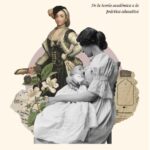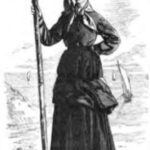In opera, human feelings are sung. Until Rossini, operatic plots described emotions in an abstract way: love, hatred, jealousy, envy, pride, considered as categories. With the emergence of romanticism, the focus turns to the situation of a specific character, who reacts to other characters who are also individualised. Romanticism exchanges the AFFAIRS of classicism for true PASSION.
This portrayal of feeling as the main cause of the character’s behaviour is done at the cost of blurring the environment. Nature is a mere backdrop and the historical setting is of interest not for its authenticity, but as a trigger for the psychological shudders of the protagonists. In the opera, the Middle Ages are made of papier-mâché.
Collection: Multimedia
Project: 11. Science and culture as representation in Europe.
Chronology: -
Scope: Secondary Education
Link: https://www.youtube.com/watch?v=10QAMNtzUtQ
Resource type: Vídeo
Format: Multimedia
Owner: Arqueological National Museum of Spain (MAN) (Modernalia)
Abstract: In opera, human feelings are sung. Until Rossini, operatic plots described emotions in an abstract way: love, hatred, jealousy, envy, pride, considered as categories. With the emergence of romanticism, the focus turns to the situation of a specific character, who reacts to other characters who are also individualised. Romanticism exchanges the AFFAIRS of classicism for true PASSION. This portrayal of feeling as the main cause of the character's behaviour is done at the cost of blurring the environment. Nature is a mere backdrop and the historical setting is of interest not for its authenticity, but as a trigger for the psychological shudders of the protagonists. In the opera, the Middle Ages are made of papier-mâché.
Tags





